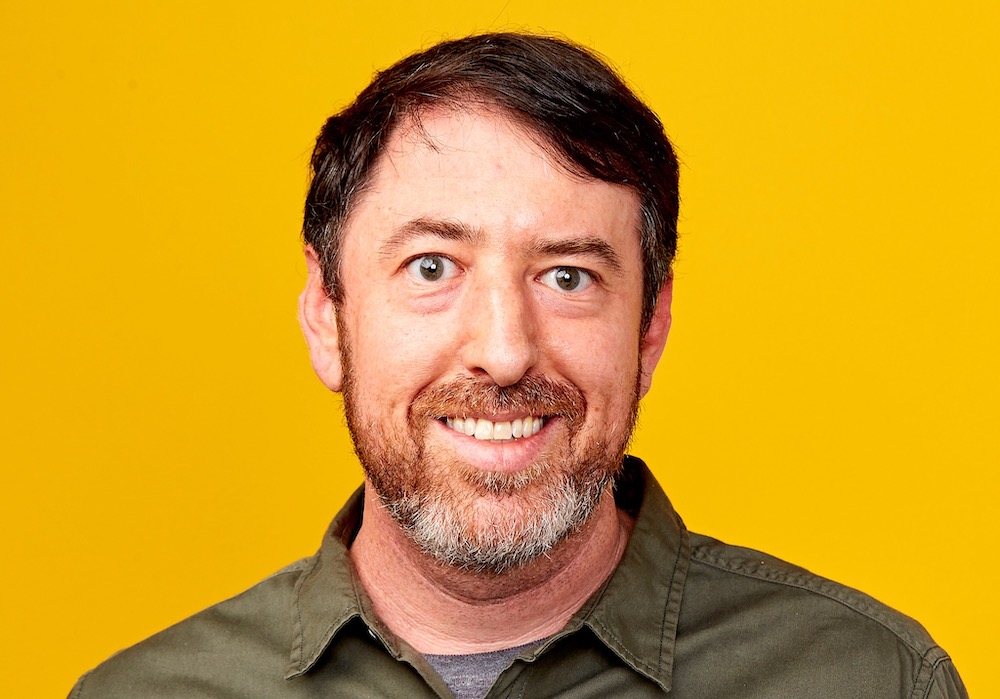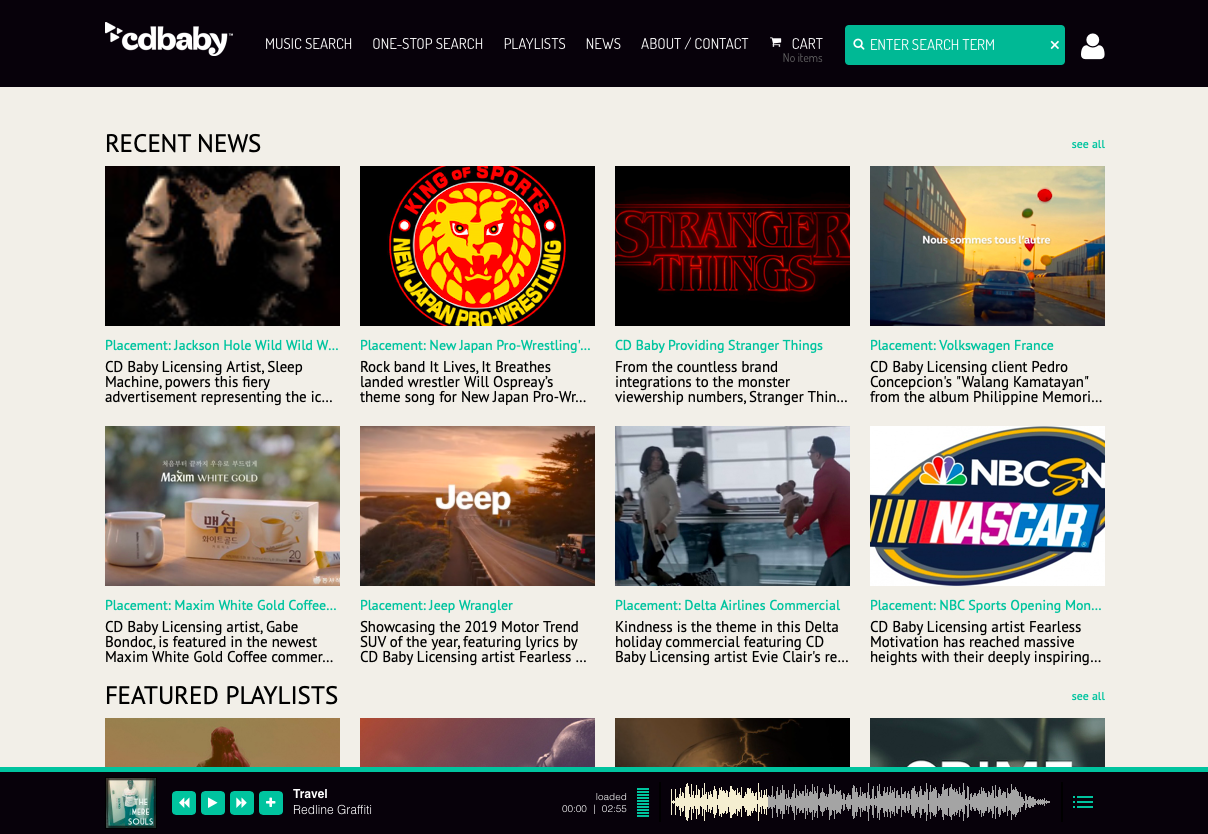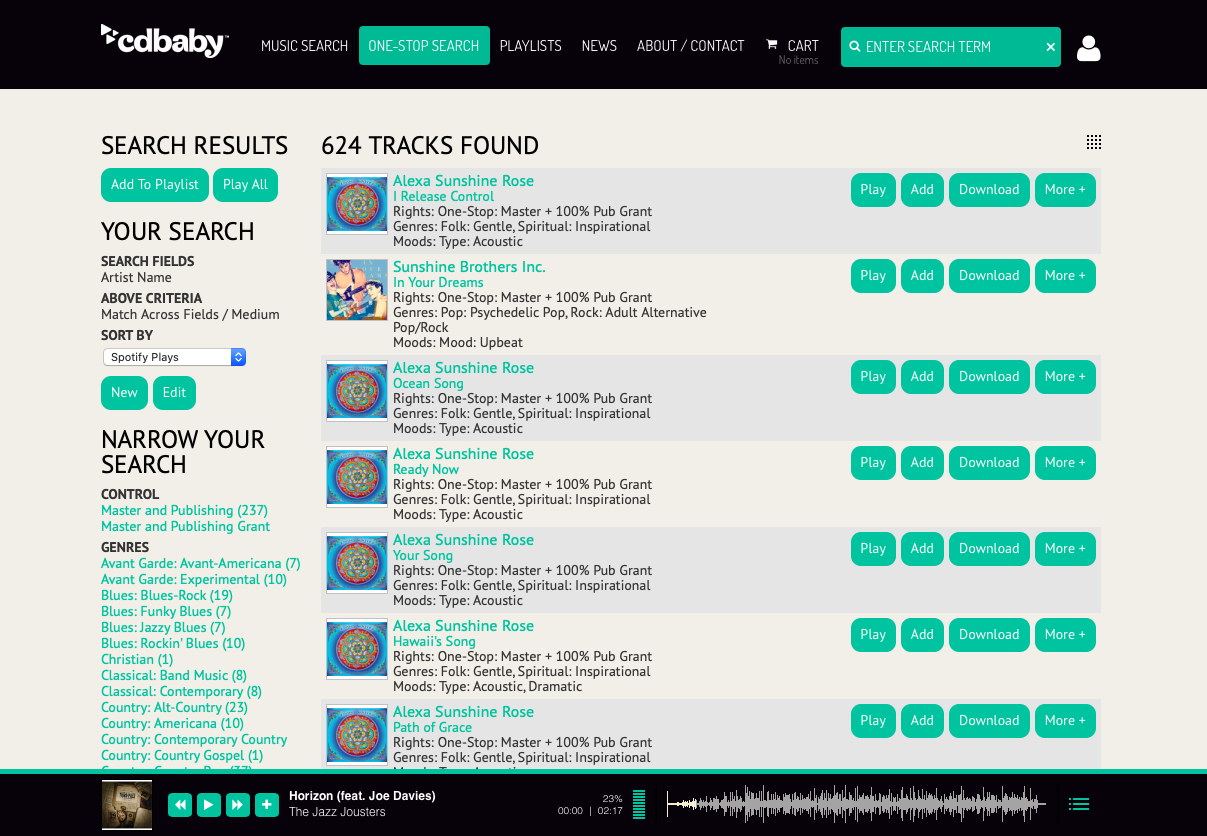Jon Bahr serves as the VP, Business Development & Licensing at AVL Digital, the global leader of independent music monetization and parent company to brands including CD Baby, AdRev, and DashGo.
After 13 years at ASCAP, Bahr joined Synchtank client CD Baby in 2016 and now works across AVL Digital Group, which was acquired by Downtown Music Holdings in March 2019.
We recently caught up with him to discuss the secret to CD Baby’s booming sync operation, how AVL Digital is creating a fairer business across its services, and what the future holds for the music industry post-pandemic.
Can you tell us about your role at AVL Digital?
I’ve recently moved from CD Baby to AVL Digital Digital Group, which includes AdRev, CD Baby, DashGo, FUGA, Show.co, and Soundrop, so my role is spread across the entire group with a focus on business development. I help to create and grow relationships with people looking to collaborate with us across our businesses.
I’m also focused on sync and licensing our catalog, which is something that we are putting more focus on since I joined CD Baby in late 2016. We’ve put a lot of focus on engaging music supervisors and building relationships with them. Usually they’ll come in via one specific need – whether that’s an artist or a certain sound or genre – and once they see our catalog, they keep coming back to us.
How does your sync operation work?
Our Sync Licensing Manager Brett Byrd runs our day to day operation and is focused on briefs, engaging music supervisors, licensing, invoicing, and all of those core functions. He drives most of our business with direct pitching. I’m focused on growing what we have as a whole. Right now it’s CD Baby, but in the future there will be opt-ins from our brands like DashGo or Soundrop. The real goal is to serve licensee needs. Our catalog has a lot of different niches, so we look to work with companies with a wide range of needs.
Our catalog has a lot of different niches, so we look to work with companies with a wide range of needs.
We’re not looking to replace production music or provide low-cost music for YouTube videos, we don’t do those licenses. We have a catalog of commercially released music that’s Shazamable and on Spotify. One of the first things we did using Synchtank was take our 5 million sync songs and parse them out based on their rights picture. We have every cover master and public domain master segmented out. We have our core one-stop catalog of over a million songs, where we have the master that we distribute and the publishing that we administer. Everything else is kept on the site but in a separate area.
Has the Downtown acquisition of AVL Digital had an impact on your sync business?
While we still operate completely separately, Downtown’s acquisition of AVL Digital has given us a lot of insight into pricing negotiations since we often see the same briefs or work with the same music supervisors. We have a lot more pricing intelligence, which helps us to license at the right dollar amount for our catalog. I often encounter people offering to license their tracks for $100, and that’s where we can step in and say, this is worth at least two, three, $4,000 at minimum. We make sure our clients get the highest dollar amount for their copyrights. The global nature of their team has also expanded our reach. We were very North America focused and now we’re engaging briefs from a broader range of countries.
Downtown’s acquisition of AVL Digital has given us a lot of insight into pricing negotiations since we often see the same briefs or work with the same music supervisors. We have a lot more pricing intelligence.
Just how varied is the CD Baby Licensing catalog?
We’re a huge collection of niches. Sometimes you go down the rabbit hole and the discoveries you make are just amazing. For example, when I first saw ‘I Love Rock ‘N’ Roll’ in our catalog, it was marked as an original and I realized that Alan Merrill, who sadly just passed away from coronavirus, had used us to distribute the master that Joan Jett covered. So we’re really unique in that sense.
We had a sync this week on the upcoming TLC show 90 Day Fiancé: Self-Quarantined and it was for a karaoke song in Tagalog, the language of the Philippines. We have a great catalog there and have done nearly 10 syncs in CBS’ SEAL Team in Tagalog.
You had your most successful month ever for sync placements in April which is amazing, particularly given the current circumstances. Can you talk us through some of those placements and what you attribute that success to?
The growing awareness of our catalog within the supervisor community has people coming back to us because of what we have. All the syncs we got in April were on top networks. I just saw one last night on the HBO show, High Maintenance. It was a visual vocal, which means the person on screen was singing the lyrics we licensed to them.
April was the highest month by volume, but I think March was the highest by revenue. May is only a few days old and I would say it’s already a top 10 month. We’ve had a couple of large syncs come in, including an interesting one for a major network promo for a new season of a hit show. They ended up using an eerie version of “You Are My Sunshine”, which is just 45 seconds of someone playing the song on a music box. It’s perfect for a creepy trailer. That song has maybe 30,000 plays on Spotify and the artist will probably make more money than he’s ever made before via CD Baby. It’s really nice to be able to tell people that we made them thousands of dollars, especially in a pandemic.
How has the pandemic affected what you do? What are you noticing from a buyer perspective?
At CD Baby, we are seeing all-time record growth in new music during the pandemic. The site typically grows by 500,000 to 700,000 songs a year, but if our current rate of growth stays on pace we’re going to add a million songs with sync rights this year.
From a buyer perspective, almost everything we’re seeing within Film and TV are projects that were almost complete and are closing up. There’s a tremendous amount of new advertising requests, so it’s pretty dominant on that side right now. If you’re paying attention to TV at the moment, every brand is redoing their advertising to be reflective of the times. When the pandemic began, I expected a real steep drop off in April, which didn’t happen.
If you’re looking for a lot of quality songs of a wide variety that come directly from artists, I really don’t know a better place than our catalog.
Are there any particular growth areas that you’re excited about in sync?
I think it’s really across the board. One thing that is a growth area for me personally is creating relationships with bulk users of music. The podcast music space is somewhere that I know that we can be very helpful with licensing multi-rights, as well as games, apps and the sync teams at our streaming service partners. If you’re looking for a lot of quality songs of a wide variety that come directly from artists, I really don’t know a better place than our catalog.
How does the Synchtank platform help to support your sync operation?
Synchtank acts as a delivery end point for us. Our site is filled with music and we don’t have to do anything to populate it. That allows us to focus on the creative and catalog curation. When I first started, each search felt very daunting because of the scale of our catalog. Now that we’re bringing in every piece of data that we have as a distributor, we are able to filter the search results by details like stream count. When you’re dealing with the types of micro-niches that we have in our catalog, adding in streaming data has really helped to identify the relative popularity of a song to help guide your ears. That being said, we have landed fantastic placements for so many songs with less than 1,000 plays on Spotify, such as the obscure late ‘70s midwestern (superb) rock band Hurricane Express getting licensed for Stranger Things Season 3.
Synchtank acts as a delivery end point for us. Our site is filled with music and we don’t have to do anything to populate it. That allows us to focus on the creative and catalog curation.
You now publish over 1.5 million songs through your publishing admin service. How has that developed and what problem are you solving in the publishing world?
When I worked at ASCAP, I noticed that a lot of people who were not signed to a publisher thought that ASCAP was their publisher. They thought that ASCAP was collecting everything for them and so they weren’t even aware that they were leaving money on the table. We started publishing administration to perform a service to help get artists paid, just like everything else we do at CD Baby. We’re putting a lot of education out there and letting people know that they’re losing revenue if they’re not collecting on their publishing.
CD Baby Publishing is serviced by Songtrust, which means that we’re able to provide a global service and publish songwriters directly in the top international markets and collect money for them in those countries. On the mechanical side, internationally that’s just money that people aren’t getting if they don’t have a publishing admin going out and collecting it for them.
The independent artist sector is the fastest growing sector in the industry. As a next generation company, how are you continuing to disrupt traditional models with your services?
We really approach what we’re doing as creating an equitable future for rightsholders. If you do your research, you will consistently come to the conclusion that AdRev is best-in-class for YouTube, Songtrust is best-in-class for Publishing and so on. We go into everything wanting to create a fair business that helps content owners grow, collect, protect or maximize their content. We look at people and say, you’re earning $2,000 a month. Are you actually earning $2,000 a month? Or is that all you’re collecting? We encounter people all the time that aren’t maximizing their assets and we want them to see an uplift in revenue through our services. For Publishing, clients come to us six to nine months down the road and they’re like, “wow, publishing is valuable.”
We go into everything wanting to create a fair business that helps content owners grow, collect, protect or maximize their content.
Having a very fair admin deal with us as a service partner for a song that’s gone viral is way better for you than signing a major publishing deal where you don’t even know your value yet. The person who wrote our number one song for most of 2019 is now earning material income every quarter from their publishing. It took some time to convince them that they weren’t impacting a future Publishing deal’s value, but now they have a real sense of their value. I don’t know that they would have known to do that if they had gone to a distributor without a publishing offering.
Our publishing approach is built around songs with short term deals so we’re making it really fair and flexible. On the distribution side, we’ve got this really nice funnel, whether you’re a constant creator releasing cover songs on YouTube through Soundrop, an independent artist using CD Baby’s full-service solution, or you need label services through DashGo. Across our gamut of services we’re really able to put the right project in the right place.
How do you think the industry will change as a result of the pandemic?
I think touring and the ability to market is going to be very changed. The streaming market ecosystem hasn’t really been impacted for businesses like ours, but discovery and listening patterns are definitely going to be different. Like others, we are seeing huge volume increases releasing music at CD Baby. The businesses around artists have drastically shifted. ‘Online’ focused artists who have created income from growing on TikTok or growing out a YouTube channel currently have more equal weight than the mainstream touring artists since the whole landscape has changed.
The businesses around artists have drastically shifted. ‘Online’ focused artists who have created income from growing on TikTok or growing out a YouTube channel currently have more equal weight than the mainstream touring artists.
Random songs spike out of the blue these days (hello TikTok!) and we are the core resource for those artists to navigate their next steps of their career. That aspect doesn’t change from the pandemic, but I like to think that our role educating and providing services is that much more important to their livelihood now.



4 comments
So, how do artists benefit? How does an artist get involved with CD Baby for Sync?
[…] Bahr was recently interviewed on the Synchblog, the blog section of Synchtank’s website. Synchtank is the web application CD Baby uses to search, listen and select music from its pool of content. The program makes Bahr and his team’s jobs easier by allowing them to search CD Baby’s sync catalog by specific criteria like mood or genre to more accurately locate music to present for professional projects in the TV, film, advertising and gaming industries. […]
[…] Bahr was recently interviewed on the Synchblog, the blog section of Synchtank’s website. Synchtank is the web application CD Baby uses to search, listen and select music from its pool of content. The program makes Bahr and his team’s jobs easier by allowing them to search CD Baby’s sync catalog by specific criteria like mood or genre to more accurately locate music to present for professional projects in the TV, film, advertising and gaming industries. […]
[…] Bahr foi recentemente entrevistado pelo Synchblog, o blog do site Synchtank. Synchtank é a ferramenta que a CD Baby use para pesquisar, ouvir e escolher conteúdos sonoros. Esse programa facilita o trabalho de Bahr e sua equipe, porque permite buscar dentro do catálogo de músicas para licenciamento da CD Baby usando critérios bem específicos, como o estilo musical ou as emoções contidas na música, para apresentar o som certo para quem está procurando uma trilha sonora para TV, filme, anúncios ou jogos de videogame. […]